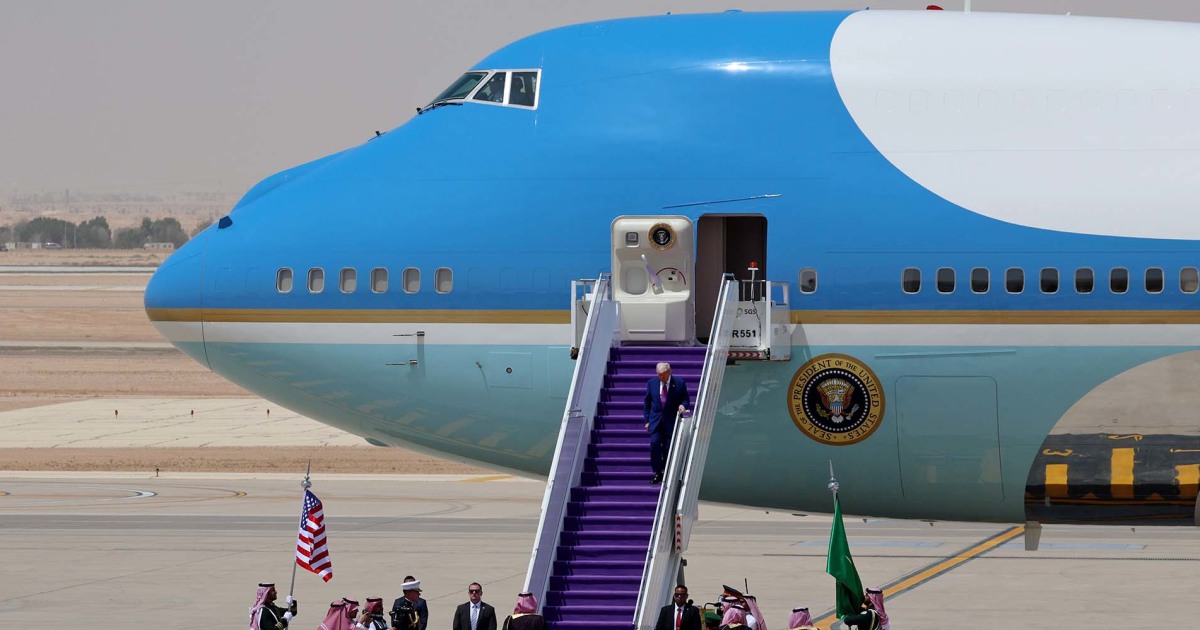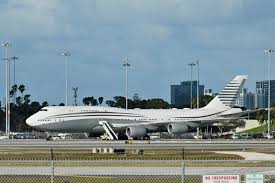President Donald Trump has been at the center of controversy over a proposed "gift" from the Qatari royal family: a superluxury Boeing 747-8 jumbo jet to be used as Air Force One. The president has defended the arrangement, emphasizing that the plane would be "FREE OF CHARGE," questioning why taxpayers should foot the bill for a new Air Force One when they could accept a free jet from Qatar.
However, the reality of the situation is far from being a cost-free boon. Aviation experts estimate that converting the Qatari-owned jet into a new Air Force One for President Trump would entail installing top-secret systems, cost over $1 billion, and take years to complete. The purported "gift" would likely end up costing U.S. taxpayers hundreds of millions of dollars over time, far exceeding the current value of the aircraft itself.
Critics argue that the so-called gift is anything but free for American taxpayers. Refurbishing the commercial plane into a suitable Air Force One would require a massive undertaking that includes meeting specific survivability, security, and communications requirements. Such extensive modifications would essentially amount to tearing down the plane to its structure and rebuilding it from scratch, resulting in a hefty financial burden on taxpayers.
Moreover, Senate Minority Leader Chuck Schumer raised crucial questions regarding the potential repercussions of accepting the Qatar-proffered jet. He expressed concerns about whether taxpayers would be forced to foot the bill for a temporary plane, leading to uncertainties about the future Boeing plane contract and its associated costs. Schumer's inquiries shed light on the lack of transparency and rationale behind accepting a gift that could end up costing taxpayers a substantial amount.
The proposal to accept the Qatari plane has faced bipartisan pushback, with concerns being raised about the ethical implications and national security risks of such a deal. While Trump has emphasized the personal benefits of accepting the gift, focusing on his own acquisition without acknowledging the long-term financial implications for the country.
The deepening relationship between the U.S. and Qatar has also come under scrutiny amid reports of the proposed jet gift. This development follows a shift in U.S.-Qatar relations, with the country transforming from an accused funder of terrorism to a significant ally hosting key U.S. military operations. Qatar's strategic importance in the region and its contributions to peace negotiations have been highlighted, raising questions about the motives behind the generous offer of a luxury jet to President Trump.
The intertwining of political, economic, and diplomatic interests in the U.S.-Qatar relationship reflects a complex web of alliances and transactions. Trump's willingness to accept the jet gift has reignited debates about the influence of foreign governments on U.S. policy decisions and the extent to which personal connections and financial interests shape diplomatic engagements.
The controversy surrounding the proposed Qatari jet as a replacement for Air Force One underscores the complexities of international relations and the delicate balance between personal benefits and national interests. As the debate unfolds, it raises broader questions about the transparency and accountability of political leaders in accepting gifts with far-reaching implications for the country and its taxpayers.


